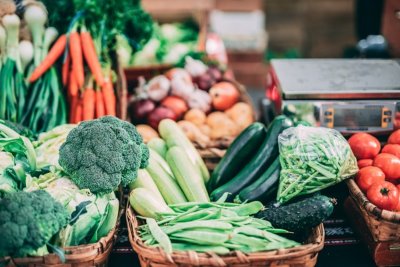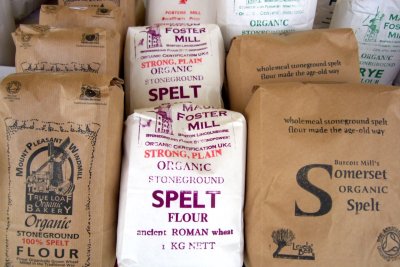Over the past month, a lot that our alliance holds dear has been put in a government bucket marked “we’ll deal with this later” and “you’ll have to trust us on this one” – not least, the principle of animal sentience, several key environmental principles that underpin our current legislative framework, and the Charter of Fundamental Rights that are currently enjoyed (even if unknowingly) by all UK citizens – see further detail below. Such principles and rights have been voted out of the Repeal Bill process – at least at the House of Commons committee stage. The House of Lords stage is now fast approaching, and is likely to see a lively ping-pong match of arguments and amendments, batted back and forth between the Houses. There is still a great deal to be won or lost, not least sensible curbs on Government powers that might otherwise prevent proper public scrutiny of important legal changes in future.
As we write, Brexit Secretary David Davis is being called to a hearing of the Commons Committee on Exiting the EU, after having reluctantly provided requested analysis of 58 industry sectors, but only in partial form. Of the sectors analysed for the Government on the impact of Brexit, four are directly relevant to food, farming and fishing. These are: Agriculture, animal health and food and drink manufacturing; Catering (retail and wholesale); Fisheries; and Retail. We await with interest, predicting a flurry of concerns about standards, regulatory bodies, trade arrangements, costs and – most especially relevant to the 8.4 million people in the UK already struggling to afford enough food – the likely result: a hike in food prices.
On behalf of the alliance, Sustain has also been meeting this month with a range of MPs, senior Defra officials in the Government and Shadow teams – mainly around the forthcoming Agriculture and Fisheries bills, and also prospects for people living on a low income. More such discussions are in the pipeline. We are also planning events to address technical issues such as the governance gap on food standards, and our relationship with the WTO. Sustain is meanwhile supporting action by the Trade Justice Movement and others to call for Trade Democracy – it being vitally important to ensure that our elected representatives in Parliament are not shut out of post-Brexit trade deals.
Some useful progress has also been made with Liam Fox and Michael Gove now affirming that food standards must not be watered down by future trade deals. However, such admirable sentiments were thrown into question by a clear warning from US Commerce Secretary Wilbur Ross to the CBI that the UK must accept US product standards if it wants a new trade deal.
Sustain and the Alliance to Save Our Antibiotics countered with the news, covered in the Huffington Post, that per-animal use of farm antibiotics in the US is now more than twice that in the UK – and that trade deals must not provide markets for meat products that would undermine the good work of British farmers and the urgent global effort to curb antimicrobial resistance and superbugs. We are planning more such analysis with Sustain’s specialist members, to demonstrate the impact of policy choices on cherished food standards, lending more weight to the idea that such decisions must not be made behind closed doors.
Don’t forget to book your ticket for the Oxford Real Farming Conference, 4th and 5th January 2018. Michael Gove will deliver the keynote speech; and Sustain will be playing a stewardship role over two days for several sessions in the Brexit Room. Don’t miss the fun! See the programme and book tickets at: http://orfc.org.uk/orfc-programme-2018/
If that’s whetted your appetite for all things Brexit, read on for news and further details. Thank you once again for all your support, expertise and insights – keep it coming. And get ready for a busy year ahead!
Kath Dalmeny
Chief Executive, Sustain: the alliance for better food and farming
www.sustainweb.org
@UKSustain
EU Withdrawal Bill (Repeal Bill) update
November 2017 for the EU Withdrawal Bill (Repeal Bill) has been awash with debates and votes in Parliament resulting in:
At House of Commons committee stage, loss from the Repeal Bill of the precautionary principle, the principle that preventive action should be taken, that environmental damage be rectified at source, that the polluter should pay, and access to justice, with an amendment championed by Labour MP Kerry McCarthy and others. Secretary of State for Defra Michael Gove swiftly announced a consultation on a new statutory body for the environment and a new policy statement “to ensure environmental principles underpin policy making”, giving the polluter pays principle as an example of what will need to be replaced. The legal standing of such as statement, the powers of a new statutory body, and its relationship to the devolved nations, have yet to be determined. A consultation is promised. The need for a new Environment Act is being re-mooted, and several members have launched public actions, including this from Pesticide Action Network.
· Loss from the Repeal Bill of the principle that animals are sentient beings, with an amendment championed by Green MP Caroline Lucas and others. A social-media furore ensued and Michael Gove promised that, “This government will ensure that any necessary changes required to UK law are made in a rigorous and comprehensive way to ensure animal sentience is recognised after we leave the EU.”
· Confirmation at Commons committee stage that the Repeal Bill will not instate the EU Charter of Fundamental Rights into UK law, on or after exit day. Former attorney general and Conservative MP Dominic Grieve had championed an amendment to protect these rights. The serving solicitor general, Robert Buckland, has now said that the government is willing to work with Dominic Grieve to see how rights under the charter could be kept after Brexit, and would introduce its own amendment to this effect later in the bill’s passage – reassurances that Grieve has accepted. Human rights specialists remain concerned that important protections may be lost, and Sustain is launching a new Right to Food project, seeking to instate accountability for action to ensure that people can eat well now, and in future generations.
· In tandem with uncertainties relating to our future trading relationship with our EU neighbours, little confidence that systems and institutions for good food governance are getting the airtime, the planning, budgeting or policy attention they deserve. The need for a new Food Act is being re-mooted.
· No real progress on what Unlock Democracy and many others describe as the ‘power grab’ inherent in the Repeal Bill, allowing Government to make significant decisions without public or parliamentary scrutiny. A new Parliamentary committee has been proposed to scrutinise the unprecedented volume of legislative changes to come.
Dates have been announced for the rest of the Commons Committee Stage: Monday 4th; Wednesday 6th; Tuesday 12th; Wednesday 13th and Wednesday 20th December 2017.
Agriculture, Fisheries and Trade Bill updates
The Fisheries Bill White Paper is still expected before the end of 2017. Contact ruth@sustainweb.org
The Agriculture Bill White (or Command) Paper is expected in February/March 2018, to be followed by a 12-week consultation and Agriculture Bill in summer/autumn 2018. Contact vicki@sustainweb.org
The Trade Bill White Paper and Customs Bill White Paper have already been published. These deal mainly with transferring existing trade agreements. Sustain’s focus will be on arrangements for future trade deals, and supporting the work of the Trade Justice Movement in calling for Trade Democracy. On food trade issues, contact kath@sustainweb.org and vicki@sustainweb.org
Other Brexit-related news from the last month
RSA launches new Food, Farming and Countryside Commission
Sir Ian Cheshire, chair of Barclays UK and Debenhams and the former Kingfisher chief executive, will chair a major new Commission into the Future of Food and Farming, coordinated by the RSA [Royal Society for the encouragement of Arts, Manufactures and Commerce]. Four Sustain member organisations are represented on the Commission: Faculty of Public Health; Green Alliance; National Federation of Women’s Institutes (NFWI); and the Soil Association; as well as Sustain itself – with Sustain’s Chief Executive Kath Dalmeny joining the Commission group. The first meeting is in January 2018; the RSA team has been busy in November 2017 conducting initial research and launch events in all of the devolved nations.
Brexit
Article 22 project seeks to instate food rights into UK law
Article 22 is a collaborative project set up by the Institute of Health and Society at the University of Newcastle, which will engage with academics, members of civil society and policy makers to examine the law and policy changes we need to secure economic, social and cultural rights in the UK.
Food Poverty
UK Trade Secretary Liam Fox recognises legitimate concerns over food standards
The UK's Secretary of State for International Trade, Dr Liam Fox, has responded to concerns expressed by the Sustain alliance, relating to US food standards such as chlorine-dipped chicken, hormone-reared beef, food irradiation and high fructose corn syrup in processed foods. Read our alliance letter, and Dr Liam Fox's response here.
Brexit
Trade Secretary Liam Fox challenged on chlorine-washed chicken, hormone beef and Salmonella in US eggs
Previously, Dr Liam Fox had reiterated his opinion that chlorine-washed chicken is safe to eat and that he had no objection to it being sold to the British public. Yet Sustain pointed out that US food standards also raise questions about hormone-reared beef and dairy, food irradiation and Salmonella in eggs…
Brexit
US farms use over twice as much antibiotics as UK farms
US farm antibiotic use is now more than twice as high per animal as it is in the UK, raising questions of what standards we will expect from US meat under new trade deals, for which talks re-commence this week. New analysis from Sustain and the Alliance to Save Our Antibiotics.
Save Our Antibiotics
Sustain baffled by swift publication of Trade Bill
Government ministers launched the Trade Bill within hours of the consultation closing - meaning that tens of thousands of responses were not considered. The bill affects a wide range of issues from food safety to GM crops to the NHS.
Brexit
Campaigners call for trade democracy
Sustain is supporting the Trade Justice Movement in its call for future trade deals to be open and democratic, ensuring that the UK uses new trade relationships to support sustainable development rathe than a global race to the bottom.
Brexit
WTO membership – some explanations
When the UK leaves the European Union it will be a World Trade Organisation (WTO) member negotiating in its own right - not as part of a bloc - on trade commitments. There are huge concerns over what that will mean for our food and farming system. Sustain is running events and producing materials to help members understand the implications. This is a short primer on the WTO, trade rules and commitments and the status of the UK before and after Brexit.
Brexit
Gove confirms UK backing for neonicotinoid pesticide ban
The UK will back a total ban on insect-harming pesticides in fields across Europe, the environment secretary, Michael Gove, has revealed.
Food and Farming Policy
Join the environmental debate: Global leadership starts at home
How can the UK Government take action on the environment and animal welfare in a post Brexit era? Join George Monbiot, Julia Davenport of Good Energy, Karla Hill of ClientEarth and MEP Catherine Bearder for Wildlife & Countryside Link's for a stimulating debate in Woking on 4th December.
Brexit
Government unclear how much it will cost to replace EU agencies
The Huffington Post reports that UK Ministers do not know how much it will cost the UK to replace the EU’s regulatory functions if we leave the EU with no deal. Parliamentary Answers given to Labour MP Mary Creagh appear to show that the staff, investment and buildings needed for the UK to maintain standards in vital areas like food safety have not been calculated.
Brexit
UK food standards set to face 'perfect storm'
Our food standards and food industry look set to face a ‘perfect storm’ from rising food prices, regulatory uncertainties, greatly diminished capacity of food inspectors and standards bodies, and likely challenges from international trade deals with countries working to lower food standards than our own. This critical analysis is published by the Sustain food and farming alliance, as their submission to the EFRA enquiry into trade in food. Sustain has been asked to give oral evidence to the EFRA committee at the beginning of December, in a session shared with Which? (Consumers’ Association) and Weatherspoons (of Brexit beer mat fame).
Brexit
Smaller fishers set to lose out from Brexit
A major new piece of research from the New Economics Foundation explores scenarios for what Brexit will mean for the UK’s fishing industry.
Brexit
Fancy working for Defra?
Apply by 10th December to become a Defra senior researcher in Bristol, London or York.
Some bedtime reading (a small selection)
- · Centre for European Reform: A UK trade deal with the US will create more problems for British agriculture and food consumers than it would solve, with authors including Chris Haskins, former chair of Northern Foods.
- · Centre for Agroecology, Water and Resilience: Public documents articulating new visions, and making recommendations, for post-Brexit food and farming policy.
- · Sera: Will Labour rise to the farming challenge? By Sustain’s farm policy specialist Vicki Hird.
- · Conservative Home: James Arnell argues for radical policy on tariffs and trade.
- · Politico EU: EU chief Brexit negotiator Michel Barnier is reportedly insisting that the UK’s push for ‘regulatory autonomy’, including detachment from European Court of Justice rulings are ‘not compatible’ with being a partner in the EU framework.
- · Politico EU: President of the industry body Food Drink Europe Hubert Weber, saying that “The smooth functioning of the Single Market is essential. It ensures the diversity, availability, affordability and safety of our products. Worrying trends towards renationalization of rules are damaging business and competitiveness.”
Brexit: We stand at a cross-roads. When the UK leaves the European Union, will our leaders uphold good standards for our food, farming, fishing and trade deals? And will they agree a sensible deal with the EU? We need to make sure that they do!



